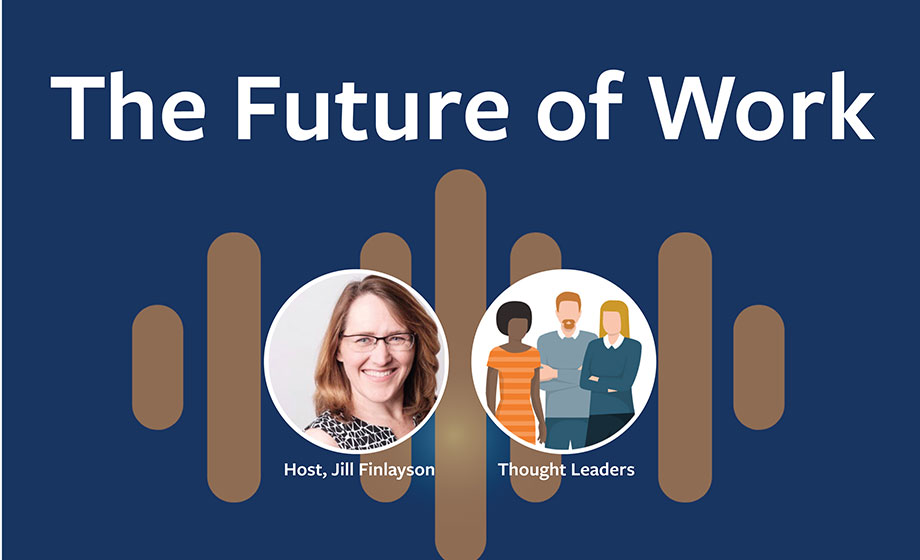Podcasts

The way we work and the skills we need to succeed continues to shift. Each month, we speak with industry leaders to discuss the changing evolution of the workforce and how you can stay competitive.
If you’re looking to reinvent your career, reboot your confidence or rethink what’s possible, we’re going to give you some time, space and strategies to imagine your next move. The past is not a fortune teller. It doesn’t dictate your future. The past is, however, an excellent teacher that offers useful lessons, but not limits. So how do we tackle finding our future career path with a minimum of stress and self-doubt?
To talk about this, we’re delighted to welcome Andrea Liebross, a results-focused business coach and life-balance architect.
As AI continues to transform our workplace, it's not just about keeping up with the tech. It's about staying grounded, sharp and curious. We need to cultivate skills that allow us to adapt, recover from setbacks and navigate complexity. In this episode, we dive into why emotional and cognitive resilience are must-haves for the future and how thinking like an innovator and above your pay grade can set you apart in an AI-powered world.
To talk about this important topic, we’re delighted to welcome Tara Chklovski, founder and CEO of Technovation.
This month, we're exploring one of the biggest shifts in the modern workplace: the move toward project-based work.
Companies are organizing their efforts around short-term, goal-driven initiatives rather than long-term roles. This evolution means that project management is no longer just a specialized function—it's becoming a core skill for everyone. Knowing how to lead a team, manage deadlines and deliver results is essential in today's fast-moving and cross-functional environment.
We continue our conversation about the state of DEI and the heavy influence that AI will have on this important directive. This month, we explore the impact of AI on DEI initiatives—how it can either amplify biases or serve as a tool for equity. We look at how DEI programs play a key role in developing AI that does not cause unintended and disproportionate harms. And we will also get a sneak peek at how AI might be changing our behaviors without us knowing.
We’re diving into a topic that’s more urgent than ever: the current state of diversity, equity and inclusion in organizations, and the profound impact artificial intelligence is having on these initiatives. As economic pressures mount, budgets tighten and politics change, a concerning trend is emerging: Organizations are scaling back their DEI initiatives. These pullbacks are raising alarms about what the future of work will look like—especially for underrepresented groups.
In this episode, we’re diving into a critical transformation happening across industries—the decline of middle management. As companies flatten their structures in pursuit of efficiency, what happens to organizational communication and workplace culture? Are we losing vital connectors who bridge leadership and employees, or is this the evolution of a more agile and collaborative workforce?
To talk about this important topic, we’re delighted to welcome Ron Coverson.





